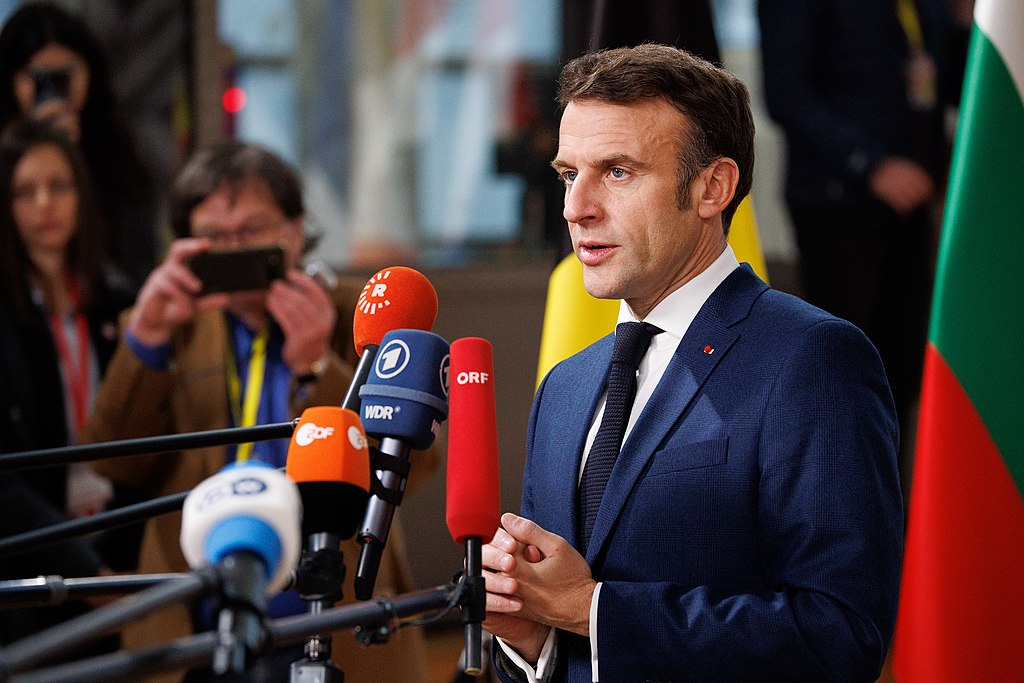French President Emmanuel Macron, speaking during a visit to Greenland, firmly rejected the idea of Russia mediating the escalating crisis between Israel and Iran. His remarks followed U.S. President Donald Trump’s suggestion that Russian President Vladimir Putin could serve as a neutral mediator. Macron dismissed the notion, citing Russia’s ongoing war in Ukraine and repeated violations of the UN Charter as clear disqualifiers for any diplomatic role.
"I do not believe that Russia, currently engaged in a high-intensity conflict and disregarding international norms, can serve as a credible mediator," Macron stated. He also clarified that France had no role in Israel’s recent military actions against Iran.
Macron's trip to Greenland—his first—comes ahead of the G7 summit in Canada. The French leader voiced strong support for the Arctic island, a self-governing territory of Denmark, amid Trump’s controversial ambitions to annex it due to its mineral wealth and strategic Arctic location. Trump has not ruled out the use of force, and Vice President JD Vance visited a U.S. base in Greenland earlier this year.
During a joint press conference with Danish Prime Minister Mette Frederiksen and Greenland’s Prime Minister Jens-Frederik Nielsen, Macron warned against "predatory ambition" and emphasized European unity. "Greenland is not to be sold or taken," he said, urging cooperation over confrontation.
An IFOP poll revealed that 77% of French citizens and 56% of Americans oppose U.S. annexation plans. Notably, 43% of French respondents support using military force to defend Greenland. In response to U.S. threats, Denmark has strengthened defense ties with France, including missile purchases.
Macron concluded by expressing confidence that the U.S., as a NATO ally, would not act aggressively against European partners.



 New York Legalizes Medical Aid in Dying for Terminally Ill Patients
New York Legalizes Medical Aid in Dying for Terminally Ill Patients  Trump Endorses Japan’s Sanae Takaichi Ahead of Crucial Election Amid Market and China Tensions
Trump Endorses Japan’s Sanae Takaichi Ahead of Crucial Election Amid Market and China Tensions  Nighttime Shelling Causes Serious Damage in Russia’s Belgorod Region Near Ukraine Border
Nighttime Shelling Causes Serious Damage in Russia’s Belgorod Region Near Ukraine Border  US Pushes Ukraine-Russia Peace Talks Before Summer Amid Escalating Attacks
US Pushes Ukraine-Russia Peace Talks Before Summer Amid Escalating Attacks  U.S.-India Trade Framework Signals Major Shift in Tariffs, Energy, and Supply Chains
U.S.-India Trade Framework Signals Major Shift in Tariffs, Energy, and Supply Chains  Iran–U.S. Nuclear Talks in Oman Face Major Hurdles Amid Rising Regional Tensions
Iran–U.S. Nuclear Talks in Oman Face Major Hurdles Amid Rising Regional Tensions  Trump Allegedly Sought Airport, Penn Station Renaming in Exchange for Hudson River Tunnel Funding
Trump Allegedly Sought Airport, Penn Station Renaming in Exchange for Hudson River Tunnel Funding  Ohio Man Indicted for Alleged Threat Against Vice President JD Vance, Faces Additional Federal Charges
Ohio Man Indicted for Alleged Threat Against Vice President JD Vance, Faces Additional Federal Charges  TrumpRx Website Launches to Offer Discounted Prescription Drugs for Cash-Paying Americans
TrumpRx Website Launches to Offer Discounted Prescription Drugs for Cash-Paying Americans  Japan Election 2026: Sanae Takaichi Poised for Landslide Win Despite Record Snowfall
Japan Election 2026: Sanae Takaichi Poised for Landslide Win Despite Record Snowfall  Trump Lifts 25% Tariff on Indian Goods in Strategic U.S.–India Trade and Energy Deal
Trump Lifts 25% Tariff on Indian Goods in Strategic U.S.–India Trade and Energy Deal  Pentagon Ends Military Education Programs With Harvard University
Pentagon Ends Military Education Programs With Harvard University  India–U.S. Interim Trade Pact Cuts Auto Tariffs but Leaves Tesla Out
India–U.S. Interim Trade Pact Cuts Auto Tariffs but Leaves Tesla Out  U.S. Announces Additional $6 Million in Humanitarian Aid to Cuba Amid Oil Sanctions and Fuel Shortages
U.S. Announces Additional $6 Million in Humanitarian Aid to Cuba Amid Oil Sanctions and Fuel Shortages  Trump Says “Very Good Talks” Underway on Russia-Ukraine War as Peace Efforts Continue
Trump Says “Very Good Talks” Underway on Russia-Ukraine War as Peace Efforts Continue  U.S. to Begin Paying UN Dues as Financial Crisis Spurs Push for Reforms
U.S. to Begin Paying UN Dues as Financial Crisis Spurs Push for Reforms  Trump Signs Executive Order Threatening 25% Tariffs on Countries Trading With Iran
Trump Signs Executive Order Threatening 25% Tariffs on Countries Trading With Iran 































